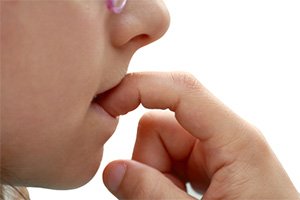Ending Nail Biting and Onychophagia With Hypnosis
Ending Nail Biting and Onychophagia With Hypnosis
The habit or compulsion to bite one’s own nails is something that affects children and adults alike. Its medical name is onychophagia.
Often, the individual experiencing the frustrating and compulsive habit of biting nails has an intense and burning desire to stop biting nails and will have tried various means in an attempt to do so.
Most often though, simple will-power and the application of bitter substances painted on the fingers have a very limited value as far as putting a permanent end to this troubling habit.
Very often, the nail biter is acutely self-conscious of the habit, yet feels powerless to control.
If left unresolved, the person may be affected in various areas of his or her life, since this pernicious habit or compulsion can seriously affect self-esteem and social interaction.
Though it has been postulated that nail biting may be caused by genetics, in my clinical experience I have not found this to be the case. In my experience, biting nails is almost always a behaviour caused by underlying psychological drivers and unresolved emotional conditions.
Very often there is underlying anxiety, stress, tension or insecurity which remains untreated and unprocessed at the deeper, subconscious level.
Occasionally, though, the individual may have learned nail biting by copying another family member or ‘relevant other’ that he or she has seen biting nails. After all, children are marvellous imitators and can easily copy others’ behaviour.
In children, nail biting often starts around the age of 5 or so, coinciding with dental development. Research has shown that somewhere in the region of 30% of all children aged between 7 and 10, and 45% of all teenagers engage in biting nails at one time or another.
Many, of course, simply and automatically ‘grow out of’ and as they mature, but many others continue to bite nails, despite their best attempts to quit biting nails.
In extreme cases, compulsive nail biting can result in bleeding and may even lead on to infection and/or damage to the gums in the mouth – gingival injury.
Research suggests that in severe cases onychophagia may be a kind of self-mutilation (Australian & New Zealand Journal of Psychiatry, 1998, vol. 32).
Traditional treatments for nail biting include dabbing the nails and fingers with bitter tasting liquids, wearing rubber finger protectors, cognitive behavioural therapy, and medication.
Unfortunately, all of these treatments focus entirely on treating the symptom – the nail biting – while leaving the reason and underlying drivers for this behaviour wholly untouched.
And, in my experience, as long as the reasons for the existence of the onychophagia remain untreated, there is a definite chance that they will find a way to re-surface, if not through nail biting, then through some other troubling symptom.
Fortunately real help is available.
With correctly applied transformational hypnotherapy, we can uncover the underlying reasons for this behaviour and neutralise the drivers.
Once this is done, the individual is guided into re-programming his or her subconscious mind in order to handle stress, anxiety etc in a far less harmful and much more positive manner.
The length of treatment differs, of course, from individual to individual, with the majority of people taking somewhere in the region of 4 to 6 sessions in order to rid themselves of this truly inconvenient and embarrassing behaviour.
If you, or someone you care about suffers from the compulsion of nail biting or the habit of biting nails, you really can stop biting nails and put an end to nail biting with fast and effective transformational hypnotherapy.
The good news is that with advanced hypnotherapy you really can quit biting nails for good.
Source: https://recentlyheard.com/2021/09/14/ending-nail-biting-and-onychophagia-with-hypnosis
Add Stop Nail Biting to Shopping Basket and View Basket
End of Ending Nail Biting and Onychophagia With Hypnosis


Comments
Ending Nail Biting and Onychophagia With Hypnosis — No Comments
HTML tags allowed in your comment: <a href="" title=""> <abbr title=""> <acronym title=""> <b> <blockquote cite=""> <cite> <code> <del datetime=""> <em> <i> <q cite=""> <s> <strike> <strong>